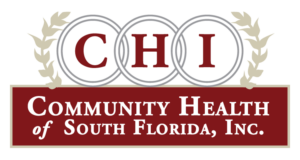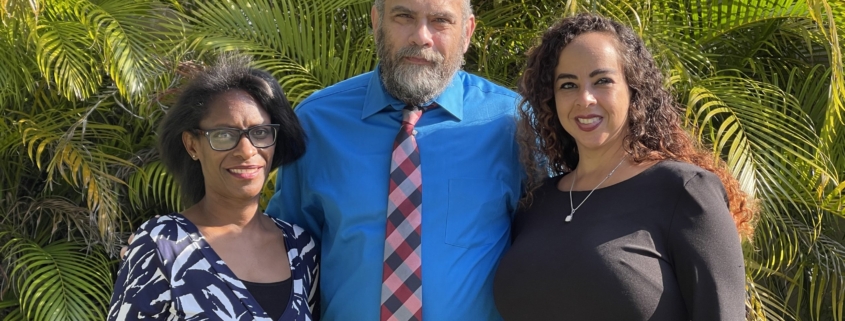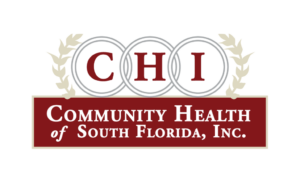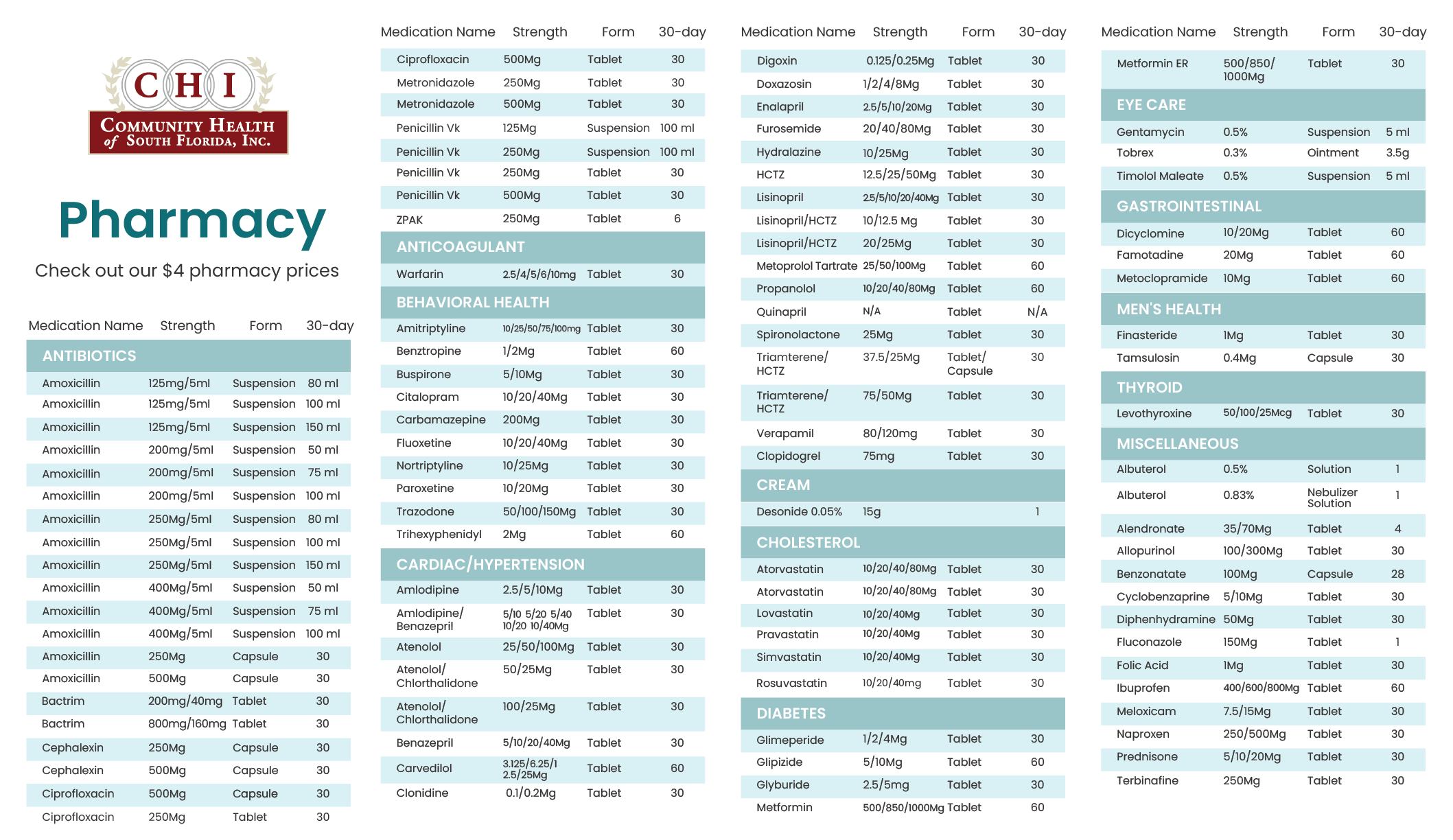CHI Receives a $52,000 Grant to Help End the HIV Pandemic in South Florida

(Left to right) C.A.R.E.S team members Tabitha Hunter, Charles Garcia and Joann Montalvo stand together ready to serve the South Florida community.
Florida remains among the top five states with the highest rates of HIV diagnoses, according to Becker’s Hospital Review. In South Florida, individuals are faced with stigmas that stem in part from cultural diversity. Many Hispanics, Haitians, and African-Americans have certain biases toward HIV, which pose a challenge to individuals who may be seeking testing or treatment.
“Individuals with HIV have, what we call, a social death before they have a physical death,” said Tabitha Hunter, the C.A.R.E.S. (Comprehensive AIDS Resources and Education Services) Manager at CHI. “The social death causes them to go into hiding or become secretive about their diagnosis. Therefore, they don’t tell their partners, and people get infected because they know if they tell someone, everyone is going to look at them the wrong way.”
In addition to the stigma and secrecy, delivering services to individuals at risk of HIV or with HIV became even more difficult during the COVID-19 pandemic. The C.A.R.E.S. department at CHI provides prevention and intervention services to HIV patients. During the pandemic, outreach was very challenging as most people were in quarantine and social events were canceled. People were asked to come in-person to CHI’s health centers, as long as they weren’t COVID-19 positive.
This year, just in time for HIV Awareness Day, the department received a $52,000 grant from the Miami-Dade County Health Department to be used over a five-month period. This grant is part of an initiative with the Department of Health and Human Services (HRSA) to end the HIV epidemic in the community.
Now, CHI can continue bringing awareness to HIV, transmission, testing, and treatment. Through this grant, the C.A.R.E.S. team is focused on community events, both virtual and in-person, as well as outreach in high-risk and low-income areas. They will distribute condoms and administer HIV testing via drive-throughs and CHI’s mobile medical vans. The team will also educate the community on a new prevention initiative: PrEP (Pre-Exposure Prophylaxis). It is a medicine that at-risk individuals who do not have HIV can take in order to prevent infection.
Furthermore, the C.A.R.E.S. department is changing the way it reaches out to individuals. Rather than going door-to-door, the team will be using social media to connect with a wider audience, in hopes of opening up conversations about HIV and expanding access to services. “Just because they are HIV positive doesn’t mean that they are not a human being,” said Hunter. “They still have feelings. They still have emotional needs, physical needs, and sexual needs, so people are not going to stop having sex because they’re HIV positive. We need to get the word out about the services available to them.”






